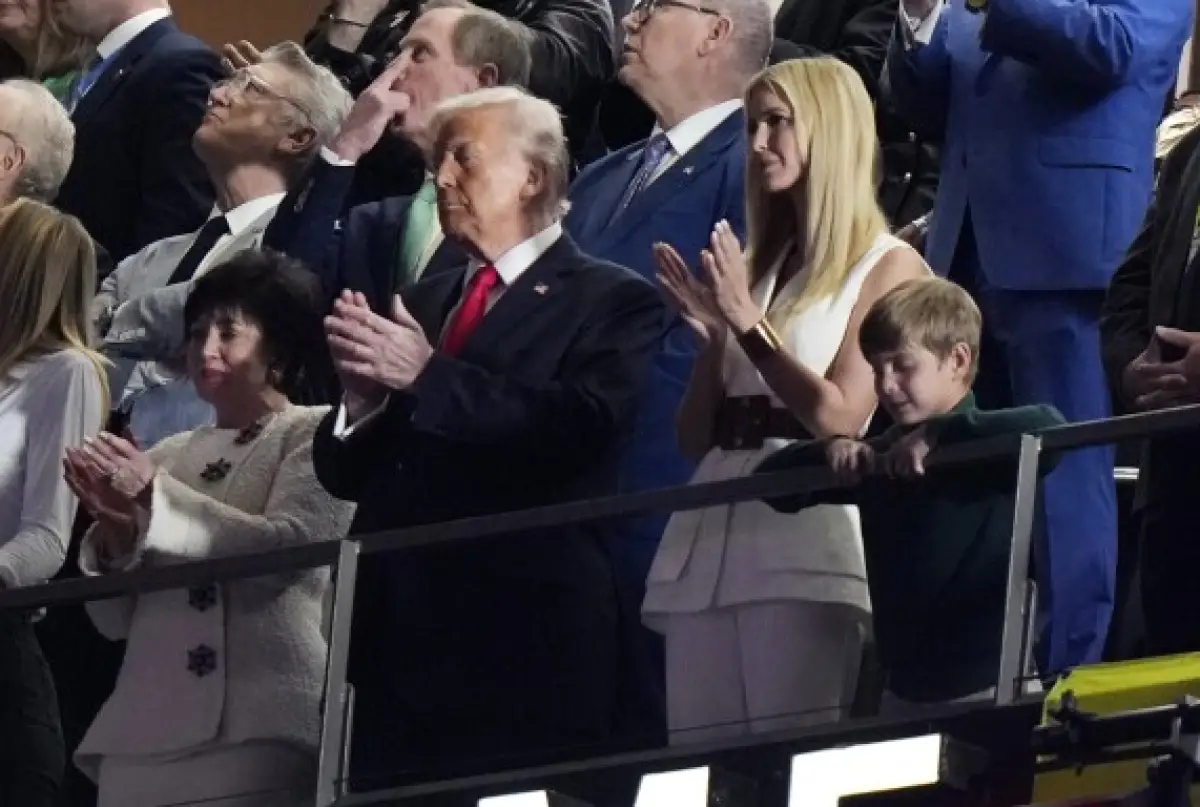As Grammy-winning musician Jon Batiste delivered a stirring rendition of the American national anthem, the camera briefly panned over to Trump, who was seen in the stands with his daughter, Ivanka. This sudden switch in focus has sparked a flurry of reactions among viewers, with many questioning the timing and intent behind the move.
Social media erupted with contrasting opinions. One user on X remarked, “You guys did not boo Donald Trump loud enough,” suggesting that a portion of the crowd was displeased with the former president’s presence. Another comment captured the sentiment of many who felt the camera shift disrupted the solemnity of the anthem: “That was pretty disappointing to see Trump during Jon Batiste’s performance. It forced me and half of America to boo.” Meanwhile, other viewers found it difficult to determine whether the crowd’s reaction was one of approval or disapproval. Comments such as “Did they cheer or boo Trump? Hard to tell,” and “Was it a cheer or a boo at #SuperBowlLIX?” have added to the ongoing confusion.
This incident has not only stirred conversation about the immediate reaction of the fans but has also highlighted the polarized nature of the current political landscape in the United States. The presence of President Trump at the Super Bowl—an event typically celebrated for its unifying power—underscores the deep divisions that persist among the American public.
Before the game, President Trump had issued a statement expressing his enthusiasm for the event. “I look forward to joining the fans in New Orleans for Super Bowl LIX to cheer on two great teams—the Kansas City Chiefs and the Philadelphia Eagles—as they battle for the NFL’s Vince Lombardi Trophy,” he declared. He continued by praising the hard work and dedication of the teams, emphasizing that the players, coaches, and staff embodied the American Dream. “Their commitment and perseverance represent not only the best of professional football but also the hopes and dreams of our nation’s young athletes,” Trump said, adding that the event stands as a testament to the unifying power of sports.
Trump’s remarks went on to highlight the broader significance of football in American culture. He noted that football brings together families, friends, and communities, transcending political and social differences. “This annual tradition is a celebration of our shared patriotic values—family, faith, and freedom,” he asserted. His words were intended to underscore the idea that sports can serve as a common ground for all Americans, even in times of political division.
However, the camera’s brief focus on Trump during the national anthem has fueled a debate about the role of political figures in sports broadcasts. Critics argue that the timing was insensitive, as the national anthem is meant to be a moment of unity and respect. They contend that the camera should have remained on the performance, allowing the anthem to stand as a symbol of national solidarity. Supporters of the move, on the other hand, believe that the inclusion of a political figure is a natural part of live broadcasting, especially given Trump’s significant public profile and his status as the first sitting president to attend a Super Bowl.
The incident has prompted analysts to reflect on how such moments can inadvertently become politicized. In a time when every action is scrutinized, the decision to cut to Trump during a patriotic moment has become a flashpoint for broader discussions about media bias, political symbolism, and the impact of high-profile figures on national events. Whether this was a deliberate editorial decision or a spontaneous camera move, the reaction from viewers reveals just how divided opinions can be when politics intersect with sports.
As the debate continues to unfold online and in media circles, one thing is clear: the camera shift during Jon Batiste’s performance has added yet another chapter to the ongoing narrative of political polarization in America. The incident serves as a reminder that even events celebrated for their ability to unite can become arenas for controversy when a political figure is involved.

